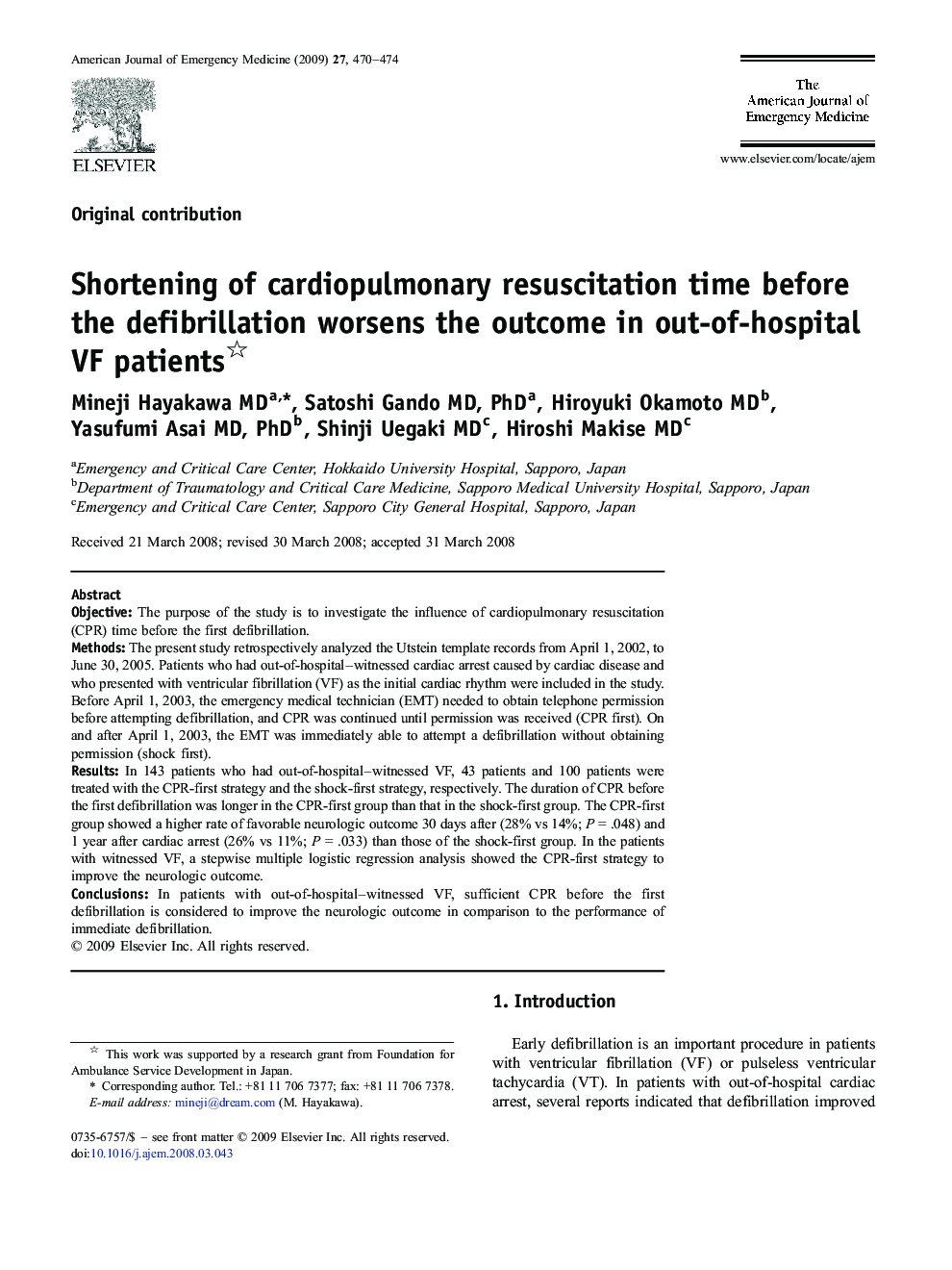| کد مقاله | کد نشریه | سال انتشار | مقاله انگلیسی | نسخه تمام متن |
|---|---|---|---|---|
| 3227268 | 1588167 | 2009 | 5 صفحه PDF | دانلود رایگان |

ObjectiveThe purpose of the study is to investigate the influence of cardiopulmonary resuscitation (CPR) time before the first defibrillation.MethodsThe present study retrospectively analyzed the Utstein template records from April 1, 2002, to June 30, 2005. Patients who had out-of-hospital–witnessed cardiac arrest caused by cardiac disease and who presented with ventricular fibrillation (VF) as the initial cardiac rhythm were included in the study. Before April 1, 2003, the emergency medical technician (EMT) needed to obtain telephone permission before attempting defibrillation, and CPR was continued until permission was received (CPR first). On and after April 1, 2003, the EMT was immediately able to attempt a defibrillation without obtaining permission (shock first).ResultsIn 143 patients who had out-of-hospital–witnessed VF, 43 patients and 100 patients were treated with the CPR-first strategy and the shock-first strategy, respectively. The duration of CPR before the first defibrillation was longer in the CPR-first group than that in the shock-first group. The CPR-first group showed a higher rate of favorable neurologic outcome 30 days after (28% vs 14%; P = .048) and 1 year after cardiac arrest (26% vs 11%; P = .033) than those of the shock-first group. In the patients with witnessed VF, a stepwise multiple logistic regression analysis showed the CPR-first strategy to improve the neurologic outcome.ConclusionsIn patients with out-of-hospital–witnessed VF, sufficient CPR before the first defibrillation is considered to improve the neurologic outcome in comparison to the performance of immediate defibrillation.
Journal: The American Journal of Emergency Medicine - Volume 27, Issue 4, May 2009, Pages 470–474